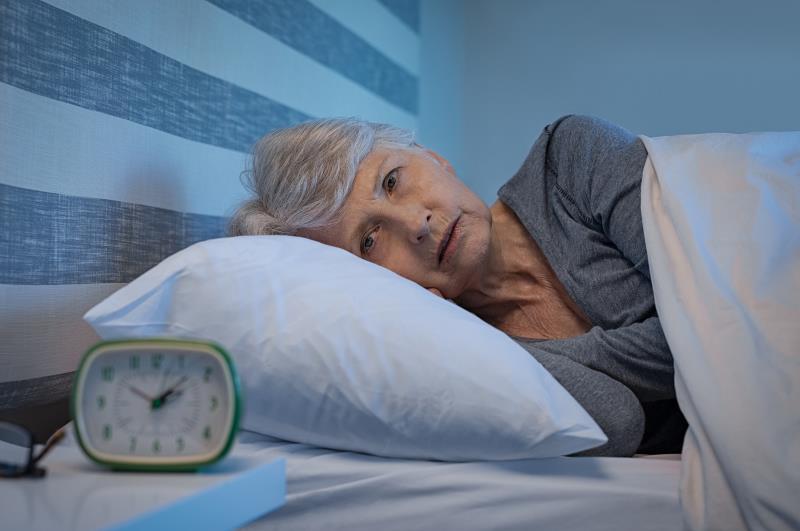
Sleep disturbance is prevalent during and after menopause, with women with anxiety and depression being at higher risk, a study suggests. Poor sleep status in the premenopausal period predicts is a strong predictor of insomnia at menopausal transition and post-menopause.
The longitudinal cohort study involved 458 women from an urban Chinese community. Researchers assessed the presence of insomnia symptoms (trouble falling asleep, waking up early), vasomotor symptoms, anxiety and depression using the Hospital Anxiety and Depression Scale, and menopausal stages.
Multivariable analysis revealed that the prevalence of trouble falling asleep was significantly higher in menopausal transition (p=0.029) and post-menopause (p<0.001) compared with that in pre-menopause. Likewise, the prevalence of early-morning awakenings also increased in menopausal transition (p=0.003) and post-menopause (p=0.011).
Trouble falling asleep showed a positive association with anxiety (p=0.022) and depression (p=0.005).
Finally, women who had insomnia in pre-menopause were at increased risk of having moderate-to-severe insomnia in menopausal transition (p=0.003) and post-menopause (p=0.047) compared with those who did not experience the sleep disorder.
The findings have important implications, given that the severity and duration of sleep difficulties are said to vary in women transitioning menopause. Some may have occasional poor nights of sleep, which, although bothersome, only have a transient effect on quality of life. On the other hand, the experience of chronic and severe sleep difficulties has been linked to greater and more prolonged impact on daytime functioning, quality of life, and health. [Nat Sci Sleep 2018;10:73-95]